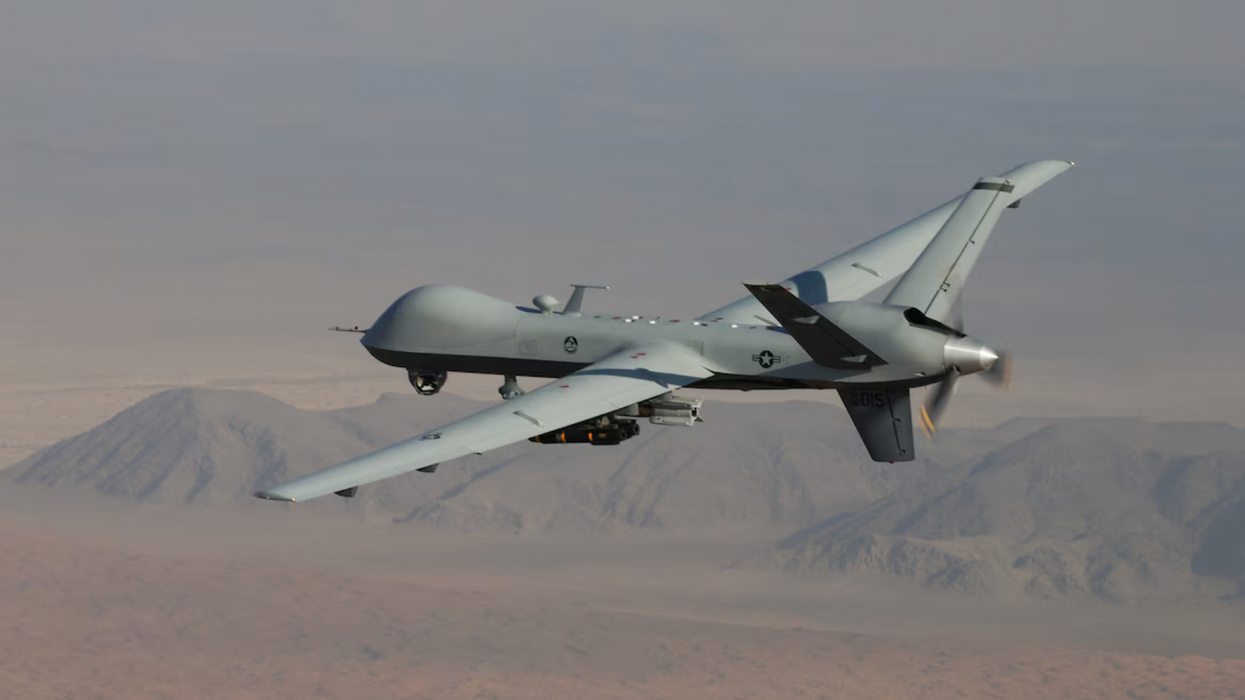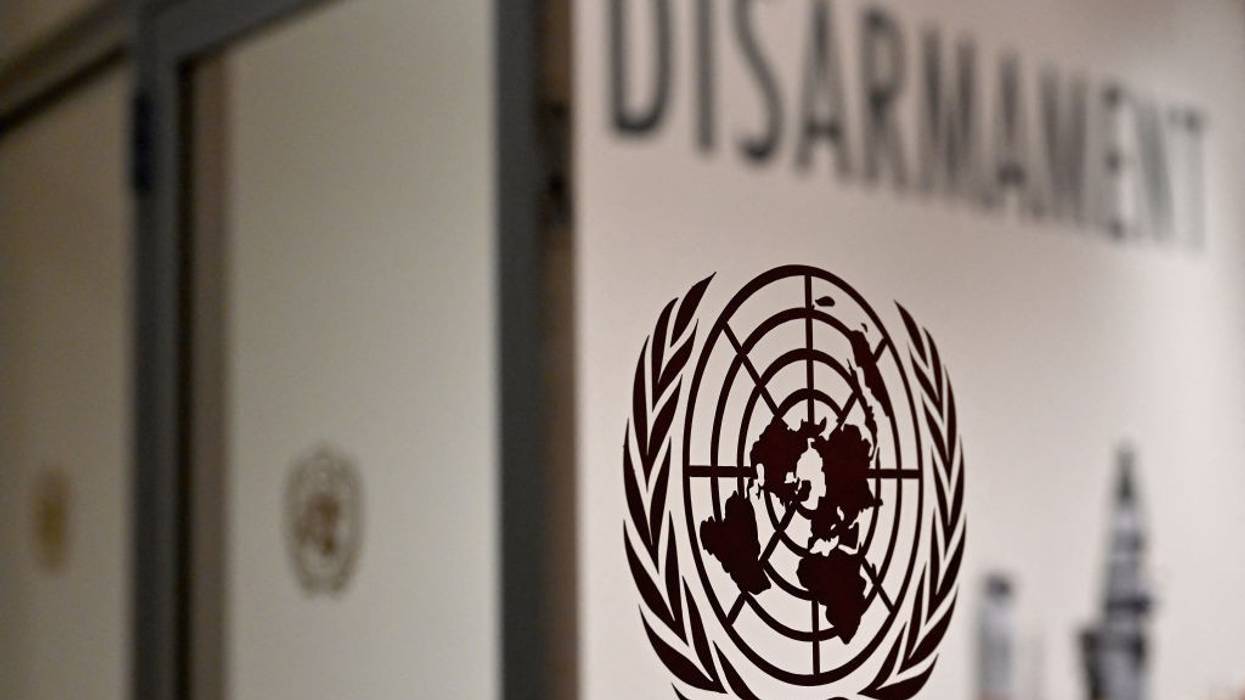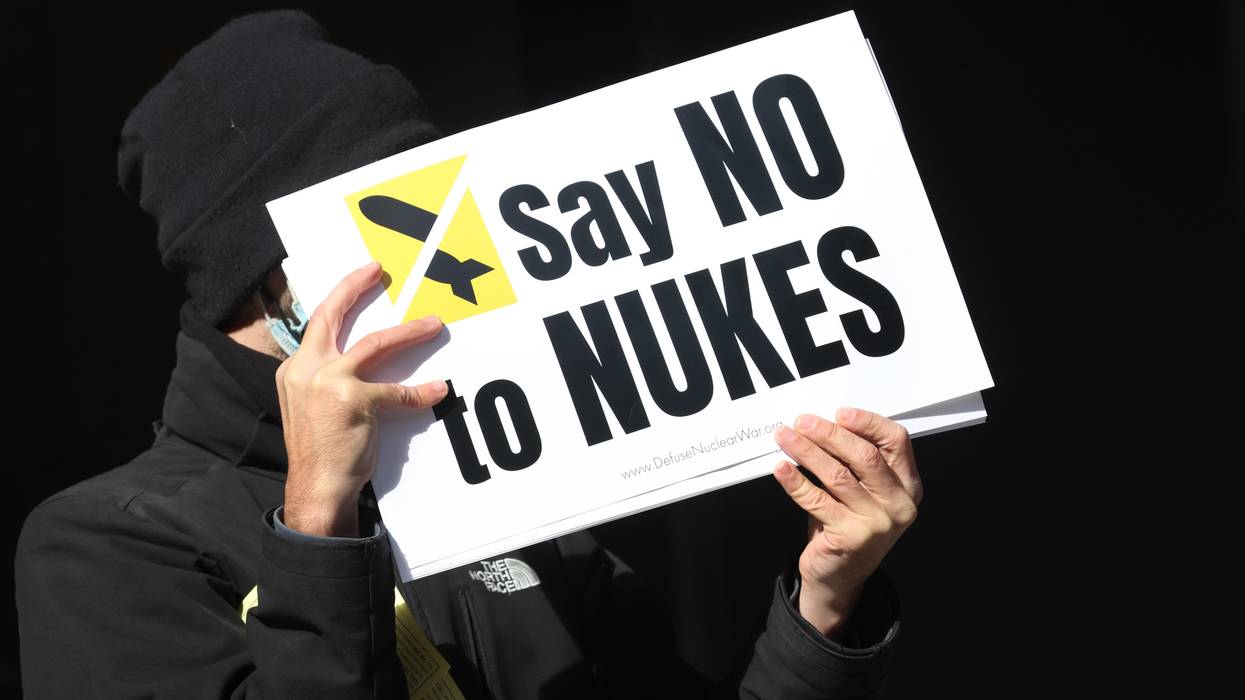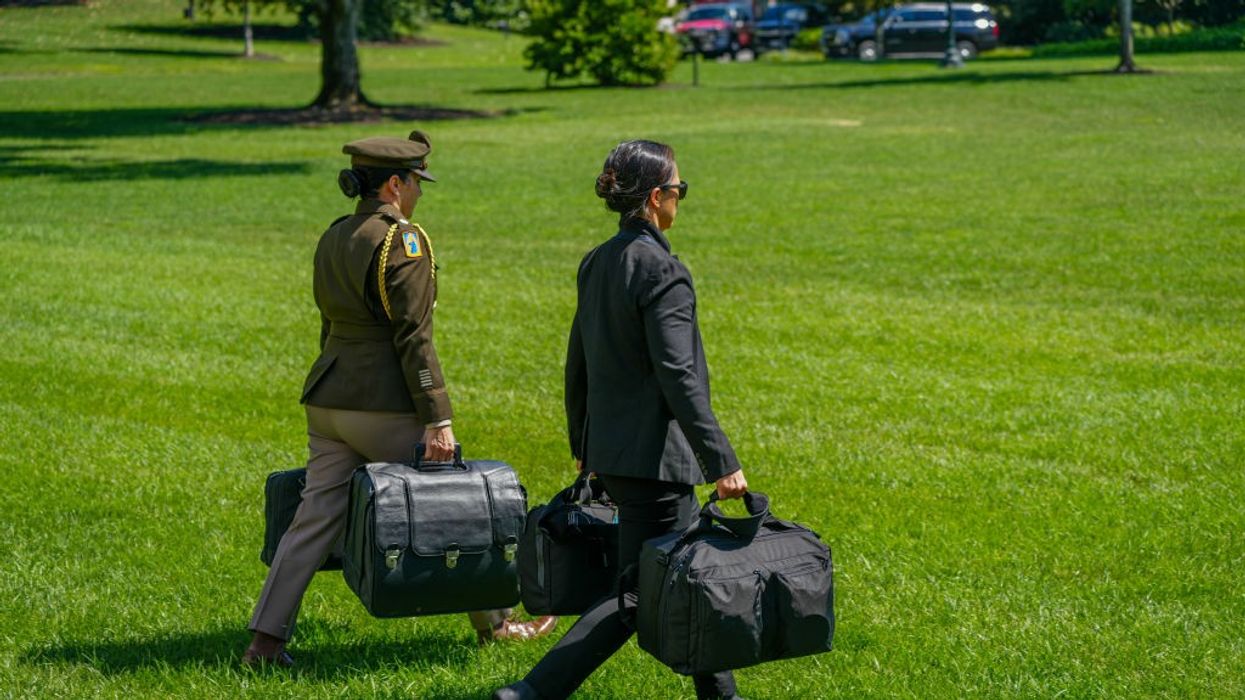The altered nuclear equation is also evident in the renewed talk of possible nuclear weapons use by leaders of the major nuclear-armed powers. Such public discussion largely ceased after the Cuban Missile Crisis of 1962, when it became evident that any thermonuclear exchange between the U.S. and the Soviet Union would result in their mutual annihilation. However, that fear has diminished in recent years and we’re again hearing talk of nuclear weapons use. Since ordering the invasion of Ukraine, Russian President Vladimir Putin has repeatedly threatened to employ nuclear munitions in response to unspecified future actions of the U.S. and NATO in support of Ukrainian forces. Citing those very threats, along with China’s growing military might, Congress has authorized a program to develop more “lower-yield” nuclear munitions supposedly meant (however madly) to provide a president with further “options” in the event of a future regional conflict with Russia or China.
Thanks to those and related developments, the world is now closer to an actual nuclear conflagration than at any time since the end of the Cold War. And while popular anxiety about a nuclear exchange may have diminished, keep in mind that the explosive power of existing arsenals has not. Imagine this, for instance: even a “limited” nuclear war — involving the use of just a dozen or so of the hundreds of intercontinental ballistic missiles (ICBMs) possessed by China, Russia, and the United States — would cause enough planetary destruction to ensure civilization’s collapse and the death of billions of people.
And consider all of that as just the backdrop against which the next president will undoubtedly face fateful decisions regarding the production and possible use of such weaponry, whether in the bilateral nuclear relationship between the U.S. and Russia or the trilateral one that incorporates China.
The U.S.-Russia Nuclear Equation
The first nuclear quandary facing the next president has an actual timeline. In approximately 500 days, on February 5, 2026, the New Strategic Arms Reduction Treaty (New START), the last remaining nuclear accord between the U.S. and Russia limiting the size of their arsenals, will expire. That treaty, signed in 2010, limits each side to a maximum of 1,550 deployed strategic nuclear warheads along with 700 delivery systems, whether ICBMs, submarine-launched ballistic missiles (SLBMs), or nuclear-capable heavy bombers. (That treaty only covers strategic warheads, or those intended for attacks on each other’s homeland; it does not include the potentially devastating stockpiles of “tactical” nuclear munitions possessed by the two countries that are intended for use in regional conflicts.)
At present, the treaty is on life support. On February 21, 2023, Vladimir Putin ominously announced that Russia had “suspended” its formal participation in New START, although claiming it would continue to abide by its warhead and delivery limits as long as the U.S. did so. The Biden administration then agreed that it, too, would continue to abide by the treaty limits. It has also signaled to Moscow that it’s willing to discuss the terms of a replacement treaty for New START when that agreement expires in 2026. The Russians have, however, declined to engage in such conversations as long as the U.S. continues its military support for Ukraine.
Accordingly, among the first major decisions the next president has to make in January 2025 will be what stance to take regarding the future status of New START (or its replacement). With the treaty’s extinction barely more than a year away, little time will remain for careful deliberation as a new administration chooses among several potentially fateful and contentious possibilities.
Its first option, of course, would be to preserve the status quo, agreeing that the U.S. will abide by that treaty’s numerical limits as long as Russia does, even in the absence of a treaty obliging it to do so. Count on one thing, though: such a decision would almost certainly be challenged and tested by nuclear hawks in both Washington and Moscow.
Of course, President Harris or Trump could decide to launch a diplomatic drive to persuade Moscow to agree to a new version of New START, a distinctly demanding undertaking, given the time remaining. Ideally, such an agreement would entail further reductions in the U.S. and Russian strategic arsenals or at least include caps on the number of tactical weapons on each side. And remember, even if such an agreement were indeed to be reached, it would also require Senate approval and undoubtedly encounter fierce resistance from the hawkish members of that body. Despite such obstacles, this probably represents the best possible outcome imaginable.
The worst — and yet most likely — would be a decision to abandon the New START limits and begin adding yet more weapons to the American nuclear arsenal, reversing a bipartisan arms control policy that goes back to the administration of President Richard Nixon. Sadly, there are too many members of Congress who favor just such a shift and are already proposing measures to initiate it.
In June, for example, in its version of the National Defense Authorization Act for fiscal year 2025, the Senate Armed Services Committee instructed the Department of Defense to begin devising plans for an increase in the number of deployed ICBMs from 400 of the existing Minuteman-IIIs to 450 of its replacement, the future Sentinel ICBM. The House Armed Services Committee version of that measure does not contain that provision but includes separate plans for ICBM force expansion. (The consolidated text of the bill has yet to be finalized.)
Should the U.S. and/or Russia abandon the New START limits and begin adding to its atomic arsenal after February 5, 2026, a new nuclear arms race would almost certainly be ignited, with no foreseeable limits. No matter which side announced such a move first, the other would undoubtedly feel compelled to follow suit and so, for the first time since the Nixon era, both nuclear powers would be expanding rather than reducing their deployed nuclear forces — only increasing, of course, the potential for mutual annihilation. And if Cold War history is any guide, such an arms-building contest would result in increased suspicion and hostility, adding a greater danger of nuclear escalation to any crisis that might arise between them.
The Three-Way Arms Race
Scary as that might prove, a two-way nuclear arms race isn’t the greatest peril we face. After all, should Moscow and Washington prove unable to agree on a successor to New START and begin expanding their arsenals, any trilateral nuclear agreement including China that might slow that country’s present nuclear buildup becomes essentially unimaginable.
Ever since it acquired nuclear weapons in 1964, the People’s Republic of China (PRC) pursued a minimalist stance when it came to deploying such weaponry, insisting that it would never initiate a nuclear conflict but would only use nuclear weapons in a second-strike retaliatory fashion following a nuclear attack on the PRC. In accordance with that policy, China long maintained a relatively small arsenal, only 200 or so nuclear warheads and a small fleet of ICBMs and SLBMs. In the past few years, however, China has launched a significant nuclear build-up, adding another 300 warheads and producing more missiles and missile-launching silos — all while insisting its no-first-use policy remains unchanged and that it is only maintaining a retaliatory force to deter potential aggression by other nuclear-armed states.
Some Western analysts believe that Xi Jinping, China’s nationalistic and authoritarian leader, considers a larger arsenal necessary to boost his country’s status in a highly competitive, multipolar world. Others argue that China fears improvements in U.S. defensive capabilities, especially the installation of anti-ballistic missile systems, that could endanger its relatively small retaliatory force and so rob it of a deterrent to any future American first strike.
Given the Chinese construction of several hundred new missile silos, Pentagon analysts contend that the country plans to deploy as many as 1,000 nuclear warheads by 2030 and 1,500 by 2035 — roughly equivalent to deployed Russian and American stockpiles under the New START guidelines. At present, there is no way to confirm such predictions, which are based on extrapolations from the recent growth of the Chinese arsenal from perhaps 200 to 500 warheads. Nonetheless, many Washington officials, especially in the Republican Party, have begun to argue that, given such a buildup, the New START limits must be abandoned in 2026 and yet more weapons added to the deployed U.S. nuclear stockpile to counter both Russia and China.
As Franklin Miller of the Washington-based Scowcroft Group and a former director of nuclear targeting in the office of the secretary of defense put it, “Deterring China and Russia simultaneously [requires] an increased level of U.S. strategic warheads.” Miller was one of 12 members of the Congressional Commission on the Strategic Posture of the United States, a bipartisan group convened in 2022 to reconsider America’s nuclear policies in light of China’s growing arsenal, Putin’s nuclear threats, and other developments. In its final October 2023 report, that commission recommended numerous alterations and additions to the American arsenal, including installing multiple warheads (instead of single ones) on the Sentinel missiles being built to replace the Minuteman ICBM and increasing the number of B-21 nuclear bombers and Columbia-class ballistic-missile submarines to be produced under the Pentagon’s $1.5 trillion nuclear “modernization” program.
The Biden administration has yet to endorse the recommendations in that report. It has, however, signaled that it’s considering the steps a future administration might take to address an expanded Chinese arsenal. In March, the White House approved a new version of a top-secret document, the Nuclear Employment Guidance, which for the first time reportedly focused as much on countering China as Russia. According to the few public comments made by administration officials about that document, it, too, sets out contingency plans for increasing the number of deployed strategic weapons in the years ahead if Russia breaks out of the current New START limits and no arms restraints have been negotiated with China.
“We have begun exploring options to increase future launcher capacity or additional deployed warheads on the land, sea, and air legs [of the nuclear delivery “triad” of ICBMs, SLBMs, and bombers] that could offer national leadership increased flexibility, if desired, and executed,” said acting Assistant Secretary of Defense Policy Vipin Narang on August 1st. While none of those options are likely to be implemented in President Biden’s remaining months, the next administration will be confronted with distinctly ominous decisions about the future composition of that already monstrous nuclear arsenal.
Whether it is kept as is or expanded, the one option you won’t hear much about in Washington is finding ways to reduce it. And count on one thing: even a decision simply to preserve the status quo in the context of today’s increasingly antagonistic international environment poses an increased risk of nuclear conflict. Any decision to expand it, along with comparable moves by Russia and China, will undoubtedly create an even greater risk of instability and potentially suicidal nuclear escalation.
The Need for Citizen Advocacy
For all too many of us, nuclear weapons policy seems like a difficult issue that should be left to the experts. This wasn’t always so. During the Cold War years, nuclear war seemed like an ever-present possibility and millions of Americans familiarized themselves with nuclear issues, participating in ban-the-bomb protests or the Nuclear Weapons Freeze Campaign of the 1980s. But with the Cold War’s end and a diminished sense of nuclear doom, most of us turned to other issues and concerns. Yet the nuclear danger is growing rapidly and so decisions regarding the U.S. arsenal could have life-or-death repercussions on a global scale.
And one thing should be made clear: adding more weaponry to the U.S. arsenal will not make us one bit safer. Given the invulnerability of this country’s missile-bearing nuclear submarines and the multitude of other weapons in our nuclear arsenal, no foreign leader could conceivably mount a first strike on this country and not expect catastrophic retaliation, which in turn would devastate the planet. Acquiring more nuclear weapons would not alter any of this in the slightest. All it could possibly do is add to international tensions and increase the risk of global annihilation.
As Daryl Kimball, executive director of the Arms Control Association, a nonpartisan research and advocacy outfit, put it recently: “Significant increases in the U.S. deployed nuclear arsenal would undermine mutual and global security by making the existing balance of nuclear terror more unpredictable and would set into motion a counterproductive, costly action-reaction cycle of nuclear competition.”
A decision to pursue such a reckless path could occur just months from now. In early 2025, the next president, whether Kamala Harris or Donald Trump, will be making critical decisions regarding the future of the New START Treaty and the composition of the U.S. nuclear arsenal. Given the vital stakes involved, such decisions should not be left to the president and a small coterie of her or his close advisers. Rather, it should be the concern of every citizen, ensuring vigorous debate on alternative options, including steps aimed at reducing and eventually eliminating the world’s nuclear arsenals. Without such public advocacy, we face the very real danger that, for the first time since the atomic bombings of Hiroshima and Nagasaki in August 1945, nuclear weapons will again be detonated on this planet, with billions of us finding ourselves in almost unimaginable peril.



